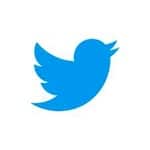The Curious History of Hashtags Plus Six Useful Resources
 Social media hashtags have become ubiquitous and a language-art of their own. You know them when you #seethem, but the cryptic, compressed (and sometimes insider) meanings are not always clearly understood…and their value is lost.
Social media hashtags have become ubiquitous and a language-art of their own. You know them when you #seethem, but the cryptic, compressed (and sometimes insider) meanings are not always clearly understood…and their value is lost.
“The # symbol, called a hashtag, is used to mark keywords or topics in a Tweet. It was created organically by Twitter users as a way to categorize messages.” [Twitter’s Definition]
As geek-like as they seem at first, a careful and creative use of social media hashtags can deliver valuable insight for the communications professional, and add miles of reach and effectiveness to your targeted marketing message. Here’s a brief overview about the why-and-how of hashtag talk.
Irreverent definition…
“A hashtag is a stupid thing people put in front of random words for no reason. It is just the pound sign you can find it on social networks like Facebook or Twitter. It is just another 21st century made up thing,” says the Urban Dictionary.
A “made up thing,” well…true that. But not for “no reason.” Hashtags are a self-assigned indexing system for topics or ideas used in micro-blogging sites. We like the concise list of five hashtag functions (with examples) published by Movements.com:
- To keep track of an ongoing conversation (#nonprofit)
- To broadcast the happenings of a one time event, conference, or emergency (#haiti)
- To get into Twitter’s list of trending topics (#justinbieber)
- To comment on the intent of the post (#ironic)
- To provide additional metadata about the tweet, such as location or speaker (#NYC)
Curious hashtag history…
You will win a trivia bet with this one. Who invented the hashtag? (Hint: It wasn’t Twitter.) Correct answer: Chris Messina, with this Tweet: “how do you feel about using # (pound) for groups. As in #barcamp [msg]?” August 23, 2007.
Only a few days later… “The first use of the term ‘hash tag’ was in a blog post by Stowe Boyd, "Hash Tags = Twitter Groupings," on 26 August 2007, according to lexicographer Ben Zimmer, chair of the American Dialect Society's New Words Committee,” says Wikipedia.
It wasn’t until 2009 that Twitter embraced the idea with hashtag hyperlinks, and thus creating a searchable index. And in 2010, Twitter’s “Trending Topics” fueled their widely #popularuse.
Hashtags Decoded: Six Useful Reference/Resources
The good-new-bad-news about (#) those pound-sign markers—as they are seldom called—is that they are user-created, discussions are unmoderated, and the meaning or purpose of any given #thingy is, hopefully (but not always) self-evident.
“Hashtags are neither registered nor controlled by any one user or group of users, and neither can they be ‘retired’ from public usage, meaning that hashtags can be used in theoretical perpetuity depending upon the longevity of the word or set of characters in a written language. They also do not contain any set definitions, meaning that a single hashtag can be used for any number of purposes as espoused by those who make use of them,” Wikipedia reminds us.
Given this #freeforall environment—and their wide spread use—Internet users and businesses have created reference sites devoted to giving the hashtag world a slight sense of order, decode meanings, avoid duplicate or divergent definitions, and in some instances, provide analytics.
Healthcare Hashtag Project This robust reference is one of the better and highly useful tools. Their goal is “to make the use of Twitter more accessible for providers and the healthcare community as a whole. By lowering the learning curve of Twitter with a database of relevant hashtags to follow, we hope to help new and existing users alike to find the conversations that are of interest and importance.”
The Regular Healthcare Hashtags page displays extremely useful categories for “Popular,” “tags,” “trending,” and “topics,” with descriptions, influencers and stats. Other dictionary and/or directories include:
Getting beyond Twitter: The other social platforms…
Whatever Twitter does…others do too. Given their online heritage, most people immediately associate hashtags with Twitter. In fact, many of the popular social media platforms have also taken up the system. Here are other SM sites where #hashtags give your messages extra mileage:
- Facebook (a recent update as of this summer)
- Flickr (posting, indexing and sharing images)
- Google Plus (search within G+ or within Facebook or Twittter)
- Instagram (for wider sharing of photos)
- Pinterest (used within a pin description)
- Tumblr (uses a slightly different tag system with largely the same result)
Check out some of the popular “healthcare marketing” tags. Search and use these variations:
- #hcmkg
- #hcmkt
- #hcmktg
- #hcmktng
- #healthcaremktg
We’ll have more about leveraging hashtags in additional posts. In the meantime, there’s more about social media in our previous posts, Twitter Card Primer: How to Break the 140 Character Barrier and Social Media in Healthcare: How to Harness the Marketing Opportunity.








